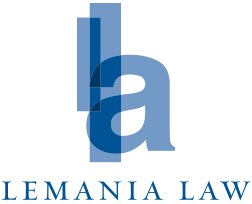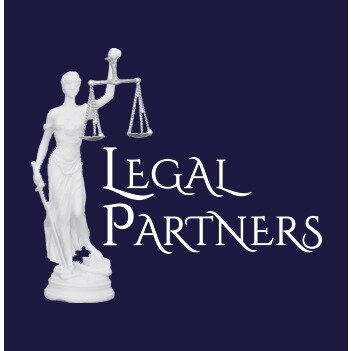Best Restructuring & Insolvency Lawyers in Switzerland
Share your needs with us, get contacted by law firms.
Free. Takes 2 min.
Or refine your search by selecting a city:
List of the best lawyers in Switzerland
About Restructuring & Insolvency Law in Switzerland
Restructuring and insolvency law in Switzerland provides the legal framework for dealing with financially distressed companies and individuals. It covers scenarios where businesses or people are unable to meet their financial obligations, offering procedures for either restoring financial health (restructuring) or distributing assets to creditors (insolvency). Swiss law aims to balance the interests of creditors and debtors, ensuring an orderly process whether the focus is on company rescue, orderly liquidation, or the personal insolvency of individuals. The Swiss system has recognized mechanisms that encourage voluntary settlements, court-supervised reorganizations, and, when necessary, the liquidation of assets.
Why You May Need a Lawyer
Legal issues around restructuring and insolvency are complex and have significant consequences. You may need a lawyer in situations such as:
- Your company is facing financial distress or cash flow problems
- You are a creditor concerned about recovering your claims from a debtor in difficulty
- You want to negotiate or contest a composition agreement (concordat)
- Your business is at risk of bankruptcy, and you wish to consider restructuring options
- You are an individual who cannot pay your debts and are seeking personal bankruptcy or debt moratorium
- You need assistance with potential liability as a director or board member
- There are cross-border insolvency issues
- You are a stakeholder in a company undergoing liquidation or recovery proceedings
Lawyers ensure that you understand your rights and obligations, help you navigate complex legal processes, and represent your interests during negotiations or court proceedings.
Local Laws Overview
Swiss restructuring and insolvency law is primarily governed by the Swiss Debt Enforcement and Bankruptcy Act (DEBA), also known as the SchKG. Key features of Swiss law in this field include:
- Debt Enforcement and Seizure: Creditors can initiate official debt enforcement proceedings to recover claims.
- Bankruptcy Proceedings: For companies and individuals unable to pay their debts, bankruptcy proceedings can lead to the liquidation of assets and distribution of proceeds to creditors according to legal priorities.
- Composition Proceedings (Concordat): This court-supervised process allows debtors to propose a settlement plan to their creditors, aiming to avoid bankruptcy through restructuring or partial debt repayment.
- Debt Moratorium: The court may grant temporary protection from creditors, giving time for reorganization or settlement negotiations.
- Directors' Liability: Directors and officers can be held liable if they fail to take appropriate action in case of over-indebtedness, such as not notifying the court as required by law.
- Cross-Border Insolvency: Switzerland recognizes certain foreign insolvency proceedings and provides mechanisms for cooperation between jurisdictions.
The Swiss system encourages restructuring and offers several tools to support struggling organizations before moving to liquidation, but compliance with formal processes and deadlines is crucial.
Frequently Asked Questions
What is the difference between restructuring and bankruptcy in Switzerland?
Restructuring focuses on stabilizing and restoring the debtor's financial health, often through settlements with creditors or reorganization plans. Bankruptcy involves the liquidation of assets to pay creditors when recovery is not possible.
Can a company avoid bankruptcy through composition proceedings?
Yes, composition proceedings (concordat) allow a debtor to negotiate a settlement with creditors under court supervision, which can help avoid formal bankruptcy and keep the business running.
What happens to employees during insolvency?
Employees are protected by specific legal provisions, and unpaid salaries rank as privileged claims. The state may also guarantee a portion of unpaid wages through the insolvency insurance fund.
How long do insolvency proceedings take in Switzerland?
The duration varies depending on case complexity, the number of creditors, and the type of proceedings. Simple bankruptcy cases may be resolved in months, while composition plans or large insolvencies may take years.
How are creditors ranked in a Swiss bankruptcy?
Creditors are divided into three classes, with first-class creditors (such as employees and social insurance claims) paid before second-class (certain taxes and pension obligations) and third-class creditors (ordinary unsecured claims).
Are directors liable for company debts?
Directors are not usually personally liable for company debts, but they may be held liable if they breach duties, such as failing to notify the court in case of over-indebtedness or acting against creditors' interests.
Can foreigners file for insolvency in Switzerland?
Yes, if they have assets or a registered office in Switzerland, foreign individuals and companies can be subject to Swiss restructuring or insolvency proceedings.
What options exist for individuals with overwhelming debts?
Private individuals may apply for personal bankruptcy or, in some cases, a debt moratorium (Nachlassstundung), allowing for negotiation of payment plans or debt relief.
How is cross-border insolvency managed?
Switzerland recognizes some foreign insolvency decisions and provides limited cooperation with foreign authorities. International agreements may also apply in specific cases.
Do I need a lawyer for restructuring or bankruptcy?
While not always mandatory, legal advice is highly recommended to understand procedures, protect your rights, and increase the chances of a positive outcome.
Additional Resources
If you need further information or support regarding restructuring and insolvency in Switzerland, the following resources may be helpful:
- Swiss Federal Office of Justice - provides information on debt enforcement and bankruptcy law
- Cantonal debt enforcement and bankruptcy offices - responsible for local procedures and public registers
- Swiss Bar Association - directory of qualified restructuring and insolvency lawyers
- Swiss Union of Creditors and Debtors’ Interests - offers information and support for those affected by insolvency
- Various consumer protection organizations - guidance for individuals facing debt issues
Next Steps
If you are considering restructuring or facing insolvency in Switzerland, it is important to act promptly. Here are practical steps to follow:
- Collect all relevant documents relating to your finances or business operations
- Assess your current financial situation in detail
- Contact specialized legal counsel to discuss your case and receive tailored advice
- Consult with relevant authorities or organizations if you require more information about your options
- If necessary, initiate proceedings or negotiations under the guidance of your lawyer
Early legal intervention can help maximize available options, prevent mistakes, and guide you towards the best possible outcome in your restructuring or insolvency matter in Switzerland.
Lawzana helps you find the best lawyers and law firms in Switzerland through a curated and pre-screened list of qualified legal professionals. Our platform offers rankings and detailed profiles of attorneys and law firms, allowing you to compare based on practice areas, including Restructuring & Insolvency, experience, and client feedback.
Each profile includes a description of the firm's areas of practice, client reviews, team members and partners, year of establishment, spoken languages, office locations, contact information, social media presence, and any published articles or resources. Most firms on our platform speak English and are experienced in both local and international legal matters.
Get a quote from top-rated law firms in Switzerland — quickly, securely, and without unnecessary hassle.
Disclaimer:
The information provided on this page is for general informational purposes only and does not constitute legal advice. While we strive to ensure the accuracy and relevance of the content, legal information may change over time, and interpretations of the law can vary. You should always consult with a qualified legal professional for advice specific to your situation.
We disclaim all liability for actions taken or not taken based on the content of this page. If you believe any information is incorrect or outdated, please contact us, and we will review and update it where appropriate.
Browse restructuring & insolvency law firms by city in Switzerland
Refine your search by selecting a city.
















